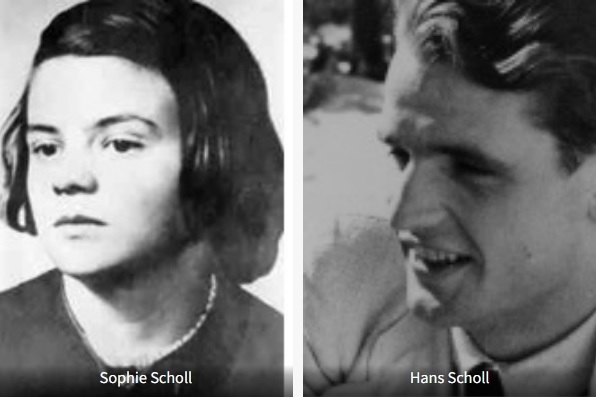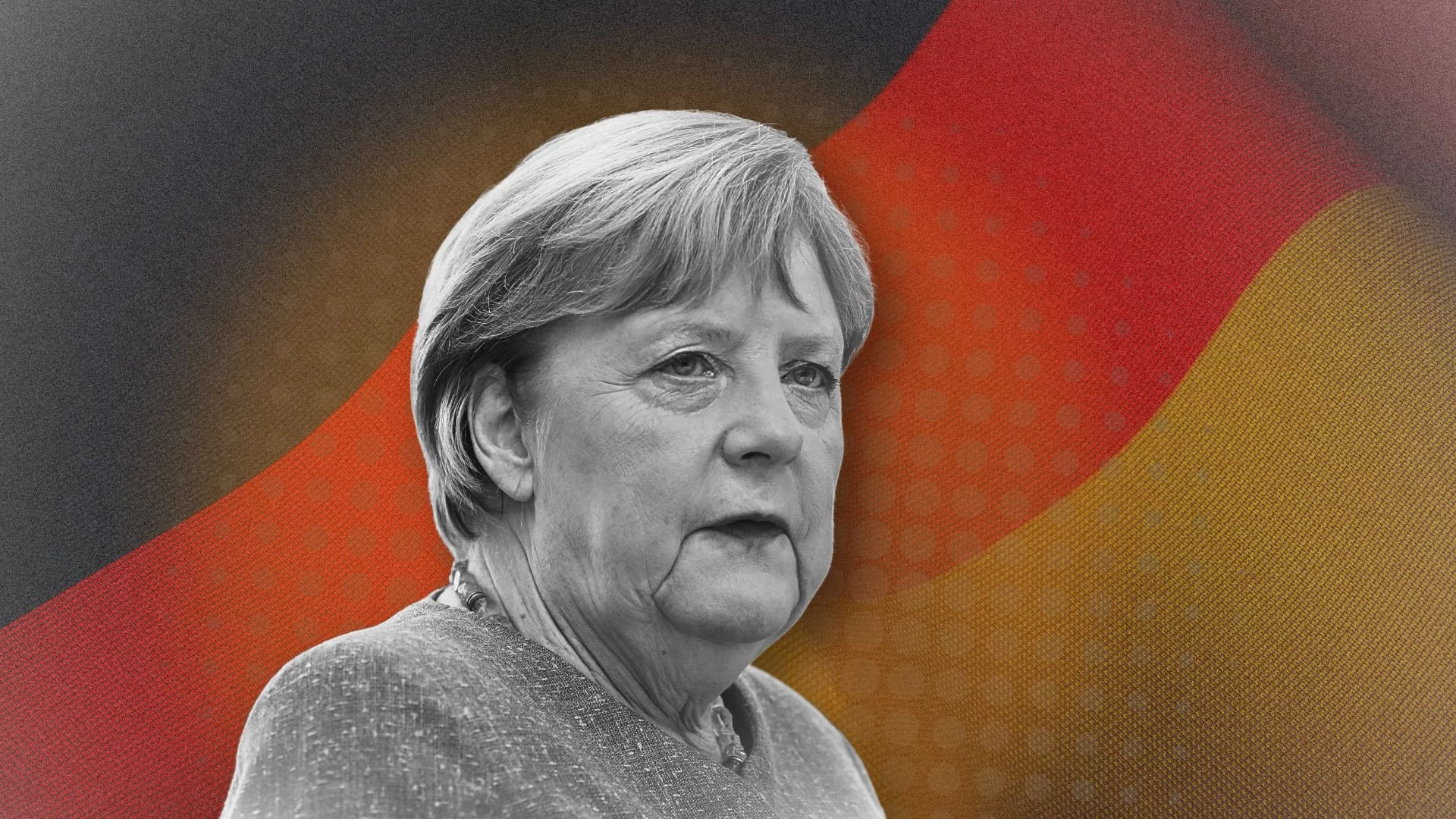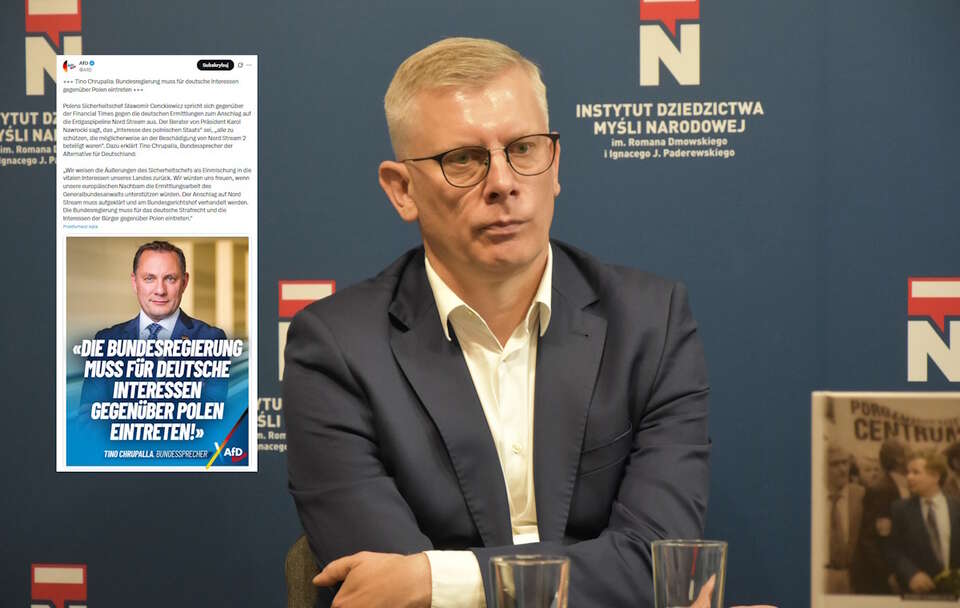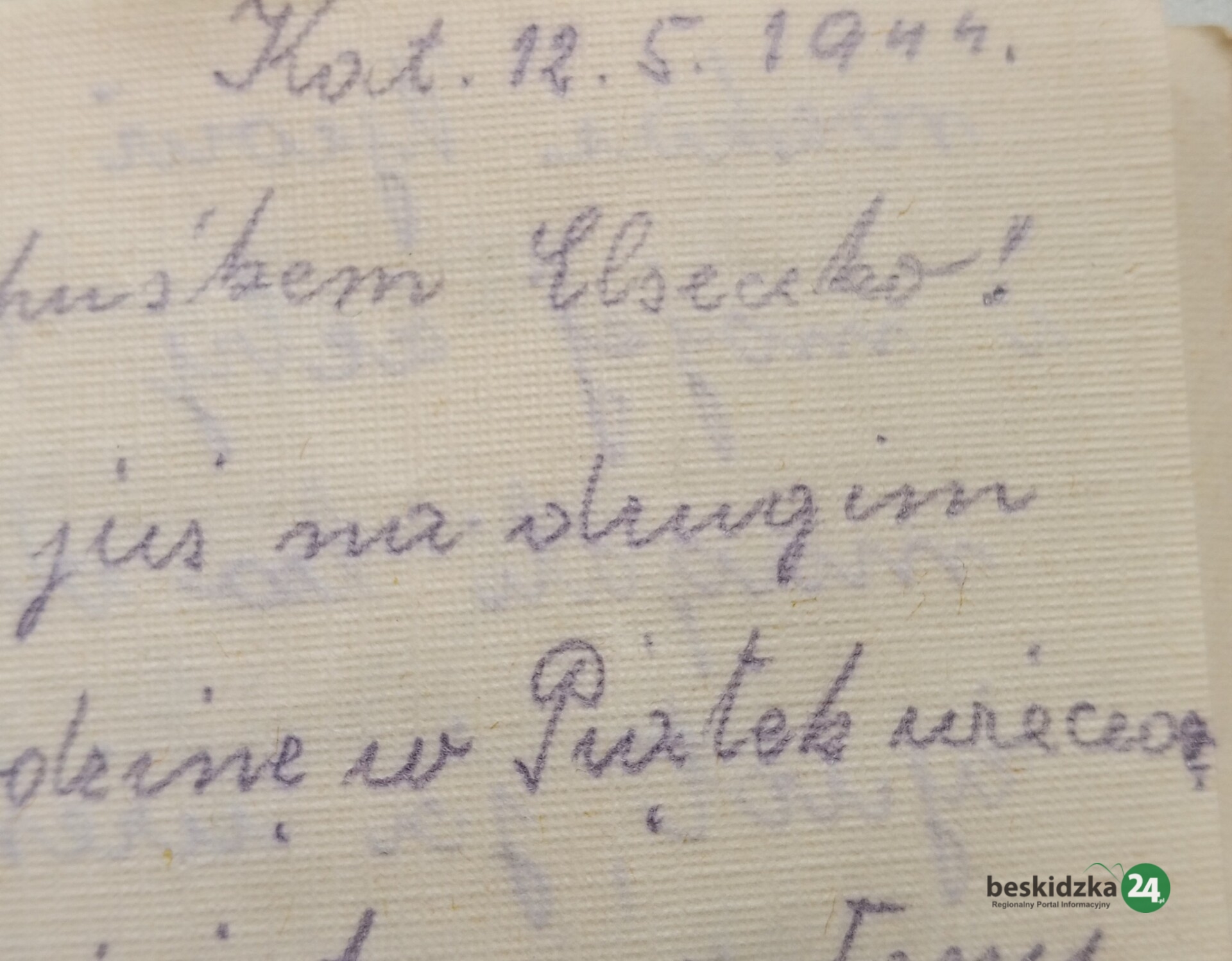
Citizens applied on July 25 to the Warsaw City Council for the name Sophie and Hans Schollów Street in Ochota district, an unnamed block connecting the streets of Banach and Pogorzelski. 30 applicants (of 15 required) and 356 supporting applicants (of 200 required) signed the application. Many have been active in gathering them, and we thank them this way.
Sophie and Hans Scholl were siblings of German students from Munich, were co-founders of the “White Rose” groupWhich in her flyers called for opposition to the Nazis. They were captured after a six-month action in February 1943, after a fictional trial, within 5 days they were convicted and beheaded in the majesty of the law.
The group's activities consisted solely of appealing to its compatriots for the awakening and overthrow of the Nazi dictatorship; they did not plan—like another Nazi opponents, including Lutheran pastor Dietrich Bonhoeffer—to assassinate Hitler. They wrote six extended texts and managed to distribute them in the form of leaflets. With the aid of these texts, they tried unsuccessfully to rise consciences, especially the German intellectual elite.
The impregnation, which the Polish citizens want to call them, runs between the buildings of the University of Warsaw.
Polish citizens: – Sophie and Hans Scholl were students of Munich University, medical and doctrine faculties. Young Poles could easy identify with them and do the lesson they teach. They just request to find out about them, and the school and college do not supply this knowledge. Hence the proposed Warsaw location for a street resembling the past of Sophie and Hans Scholl in the immediate vicinity of many faculties of the University of Warsaw: Physics, Biology, Mathematics, Geology, Chemistry, Psychology, Medical infirmary of the University of Warsaw and Institutes of the Polish Academy of Sciences, educating PhD students.

A group of 30 applicants applied for the name Sophie and Hans Scholl on the street (subscriptions were submitted by 356 residents and residents of Warsaw). The applicants include: Anna Trzebakowska, Danuta Kuroń, Ludwika Wujec, Kinga Kamińska, Hanna Machińska, Anda Rottenberg, Monika Płatek, Beata Geppert, Claudia Jachira, Mikołaj Grynberg, Piotr Pytlakowski, Mirosław Wyrzykowski, Adam Michnik, Jarosław Józef Szczepański, Olgad Łukaszewicz, Michał Szczerba.
The application was besides supported by their signatures by lecturers and faculty staff: Mathematics, Biology, Chemistry, Physics, but besides by the Faculty of Law and the Institute of Biochemistry and Biophysics of the Polish Academy of Sciences.
The justification for the proposal states, inter alia:
- "Despite the indoctrination they had undergone in Nazi youth organizations, the authors did not give in to the social force of the dehumanizing “foreign” they sided with the victims, against the full society, completely defenseless against the state's machine."
- “They could proceed to swim enthusiastically with the crowd, or they could stand aside and pretend like most people don’t see anything that doesn’t concern them. They could, like another Germans, have survived to the end of the war for the cost of accepting lies and calling evil good. But this price Sophie and Hans Scholl and their friends refused to pay due to the fact that it was higher than the price of surviving for them. They rejected the comfortable cocoon of conformism. Their interior busola indicated a different direction and ordered not to leave matters to its course.”
- "As almost the only ones with an iron consequence rejected the universal communicative and attempted to openly object. They showed desirable disobedience to the prevailing sentiments and convictions in all their surroundings. If their disobedience to Nazi self-appointed authority and social approval for evil had begun earlier and gained greater resonance, possibly there would not have been a planet war: nonconformism could have saved millions.”
- "In what does the White Rose opposition group stand out among another heroes related to the past of Nazism? Heroicism is peculiar not erstwhile it manifests itself in the defence of members of its own community, but erstwhile it provokes persecution of “others”, “foreigns” with whom it is hard to identify, it is easier to see in them an object worthy of destruction.”
- The “White Rose” lesson is not only for us a memento, but besides a current warning, an alarm bell, a call for vigilance and activity. The quote from leaflet number 3 sounds like today: “Our present country is simply a dictatorship of evil. “But we have known this for a long time”, I hear from you, “there is no request to remind”. Well, I'll ask you, if you know that, why don't you protest, why do you agree that power step by step, openly and secretly takes distant your rights from you 1 by one, and 1 day nothing will be left but state machinery alone, ruled by criminals and drunkards? Is your soul so enslaved that you have forgotten that it is not only your law, but besides your moral work to overthrow this system?"
- "The example of "White Rose" is simply a critically crucial lesson for future generations. He exhorts us that neglecting to defend our values can cost us dearly. Vigilance and opposition at the right time, leaving their comfort zone, any time devoted to social affairs, cost little, but late can cost lives. The educational value of this lesson is invaluable. It shows how crucial it is to cultivate assurance in your own judgment, courage and consequences in preaching your own truth, how crucial it is to be indifferent in the face of evil."
- "A group of 8 people in Russia besides behaved in 1968, demonstrating opposition to the invasion of Czechoslovakia in Red Square and paying a advanced price for this gesture, specified as Natalia Gorbaniewska, placed in a intellectual institution, imprisoned and expelled from Russia. ..... It seems hard to explain that these heroes were not dedicated in the naming of the streets of Warsaw and another Polish cities worthy of attention.”
* Oh, my God *
The communicative of “White Rose” has become 1 of internationally recognized symbols of antifascism. Its importance was recognised in 2021 by the Czech City Council in Prague by naming the Scholl siblings and Sophie Scholl to 2 streets in that city. The Paris authorities gave names related to the “White Rose” group to the square, but also, in 2015, the school. This shows how the weight and actuality of the past of “White Rose” is recognized after years besides outside Germany. Polish cities should follow this lead.
Polish citizens: – We are waiting for the City Council and unequivocally affirmative decision.












